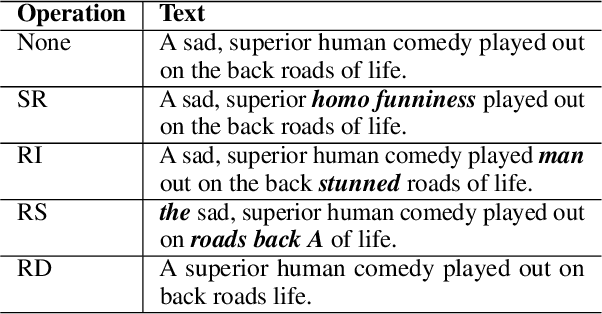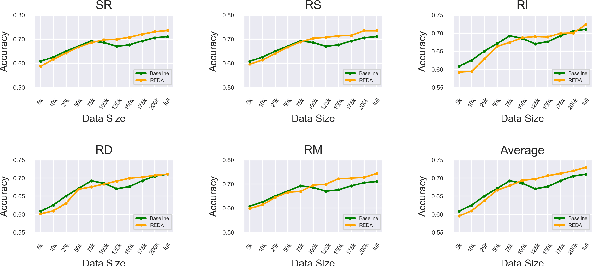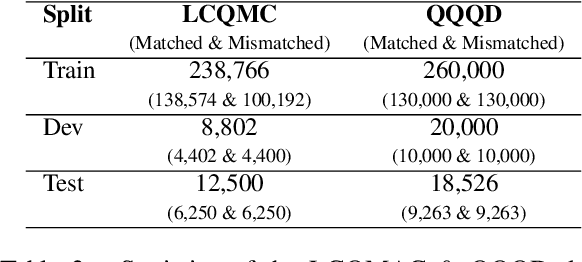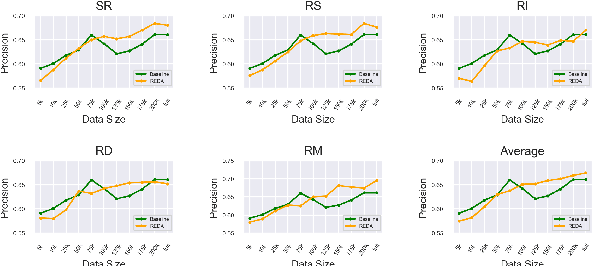Random Text Perturbations Work, but not Always
Paper and Code
Sep 02, 2022



We present three large-scale experiments on binary text matching classification task both in Chinese and English to evaluate the effectiveness and generalizability of random text perturbations as a data augmentation approach for NLP. It is found that the augmentation can bring both negative and positive effects to the test set performance of three neural classification models, depending on whether the models train on enough original training examples. This remains true no matter whether five random text editing operations, used to augment text, are applied together or separately. Our study demonstrates with strong implication that the effectiveness of random text perturbations is task specific and not generally positive.
* 6 pages; 6 tables; 2 figures
 Add to Chrome
Add to Chrome Add to Firefox
Add to Firefox Add to Edge
Add to Edge